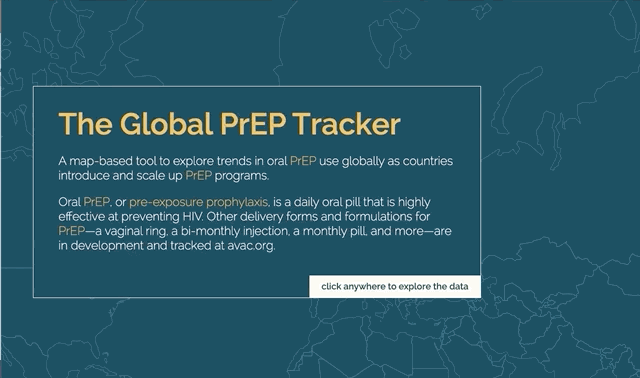Preliminary results suggest the strategy of immunizing with the SARS-CoV-2 spike protein is efficacious, but details are lacking, and the exact nature and duration of the effect is unclear.
Treatment Action Group (TAG) and AVAC welcome today’s announcement that preliminary data from the efficacy trial of Pfizer/BioNTech’s mRNA COVID-19 vaccine indicates a high-level of protection against COVID-19. Our organizations urge caution, however, given the very limited information that is available only through a company press release.
The manufacturers have reported that greater than 90 percent protection was observed in a preliminary, pre-scheduled assessment of confirmed COVID-19 cases that occurred at least seven days after trial participants received the second injection of the two-dose vaccine regimen. A total of 94 cases of confirmed COVID-19 were included in the analysis, suggesting that nine or fewer were among recipients of the vaccine.
The information was disclosed after an interim analysis by the trial’s Data Safety Monitoring Board (DSMB) and no further details or data were provided (according to reporting by STAT News, even the companies are not privy to additional information). No serious safety issues have been documented to date, but a thorough, independent review of all adverse events will be necessary prior to any marketing of the product. The DSMB has recommended that the trial continue as planned and the final efficacy analysis will be performed after 164 confirmed COVID-19 cases, which may become possible before the end of the year.
The US Food and Drug Administration (FDA) has requested at least two months of safety follow up after the second vaccination before considering an Emergency Use Authorization (EUA), and Pfizer’s CEO Albert Bourla said sufficient safety data to meet this requirement should be available by the third week of November. This is a bare minimum for any review, and TAG and AVAC call for these data to be evaluated by the FDA’s Vaccines and Related Biological Products Advisory Committee (VRBPAC) in December before any action is taken. At the recent VRBPAC meeting on October 22, several members expressed concerns about the implications of vaccine EUAs and suggested that expanded access programs would be a preferable means of providing emergency access prior to full approval.
The Pfizer/BioNTech vaccine is designed to induce immune responses against the SARS-CoV-2 spike protein, a strategy that is also employed by many other candidates that are in efficacy trials. This provides some cause for optimism that multiple other vaccines will prove efficacious.
However, many questions remain given the lack of details available. Pfizer/BioNTech must be maximally transparent in releasing full information and data sets from the trial as they become available. Among the issues that will need to be addressed:
- The exact details of the numbers involved, endpoints analyzed, and statistical findings including confidence intervals and p-values;
- Efficacy against the range of possible COVID-19 outcomes, from asymptomatic (but potentially transmissible) SARS-CoV-2 infections to severe COVID-19 disease;
- Efficacy across diverse populations, particularly those most vulnerable to severe COVID-19 such as the elderly and those with health conditions that may make COVID-19 outcomes worse;
- Efficacy in populations that have been omitted from most studies to date, including children and pregnant women;
- Full characterization of the safety profile;
- Identification of correlates of vaccine-induce immune protection (such as antibody responses);
- Investigations into why vaccination did not work in the study participants who acquired COVID-19;
- Duration of protection. Studies suggest that immunity to seasonal cold-causing coronaviruses is typically short-lived (~6 months to a year), and it will be important to conduct long-term follow up to learn whether regular re-vaccination may be necessary;
- Equitable vaccine distribution in the United States and globally. Factors that will need to be considered include cost, pace of production, availability of supply, and logistical considerations such as refrigeration (the Pfizer/BioNTech mRNA vaccine needs to be stored at -80° C until just before administration);
- Ensuring any EUA (if deemed more appropriate than expanded access by FDA) places specific requirements for continued data collection and clearly articulates the pathway and timeline for a full application for licensure; and,
- Implications for efficacy trials of other candidates, given that it may become inappropriate for participants to continue to receive placebos if an effective vaccine is available.
Today’s news offers hope that it will be possible to quell the COVID-19 pandemic with vaccination campaigns backed by strong public health measures. However, the data are still preliminary, and a safe, effective, and equitably delivered vaccine will require a great deal more verified, peer-reviewed data and regulatory decisions. Once a vaccine is available, equitable access depends on political will in the form of evidence-based messages, fully funded vaccination campaigns in all countries and communities, and a globally coordinated effort to ensure that supply and demand reflect need, not greed or nationalist responses. TAG and AVAC support the call for a people’s vaccine to made universally available to all at no cost.
TAG and AVAC are heartened by the news of the incoming US administration’s plans for dealing with the COVID pandemic and commend them for the decision to rejoin the World Health Organization (WHO) as soon as possible. We urge them to join multilateral efforts to ensure equitable global allocation and distribution of COVID-19 vaccines. No country in the world, including the United States, will end this pandemic with isolationist responses. The fact that the first report of COVID-19 vaccine efficacy emerged from a collaboration between a German and US company (the former founded by Turkish immigrants; the latter founded by German immigrants) underscores this point.
